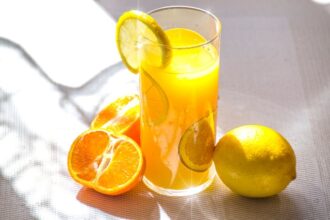“Laughter may be as effective as eye drops in treating symptoms of dry eye disease, according to findings from a clinical trial in China published by The BMJ. Researchers consider laughter exercise a potential initial treatment for relieving dry eye disease symptoms. Dry eye disease (DED) is a chronic condition affecting an estimated 360 million people worldwide, characterized by uncomfortable, red, scratchy, or irritated eyes. Studies have shown that laughter therapy can alleviate conditions like depression, anxiety, stress, and chronic pain, enhance immune function, and is acknowledged as a valuable complementary treatment for a range of chronic conditions, including mental health disorders, cancer, and diabetes. However, the specific impact of laughter therapy on dry eye disease has yet to be fully understood.
To delve deeper into this potential therapy, researchers from China and the UK embarked on a study to assess the effectiveness and safety of laughter exercises in patients suffering from symptoms of dry eye disease. The study involved 283 participants between 18 and 45 (average age 29; 74% female) evaluated for dry eye disease using the ocular surface disease index (OSDI) score. Participants were randomly assigned to either a laughter exercise group or a control group that received 0.1% sodium hyaluronic acid eye drops four times daily for eight weeks. To ensure a clear comparison, those with existing eye conditions, injuries, infections, allergies, recent use of contact lenses, or prior dry eye disease treatments were excluded from the trial.
The laughter exercise group participated in a unique regimen. They watched an instructional video and were guided to vocalize and repeat the phrases “Hee hee hee, hah hah hah, cheese cheese cheese, cheek cheek cheek, hah hah hah hah hah hah” 30 times in a five-minute session. This exercise was standardized using a face recognition mobile app to ensure consistency and enhance facial movements. Meanwhile, the control group applied the prescribed eye drops to both eyes four times daily, tracking usage via the same mobile app.
After the eight-week intervention period, both treatments ceased, and changes in eye surface discomfort were measured at the 10th and 12th weeks. The findings revealed that the average OSDI score was 10.5 points lower in the laughter exercise group, indicating less discomfort than 8.83 points lower in the eye drop group, with a mean difference of −1.45 points. This suggested that laughter exercises were comparably practical to eye drops.
In addition to the primary outcome, laughter exercise showed significant improvements in non-invasive tear break-up time, the time taken for the first dry spot to appear on the cornea after a blink, and meibomian gland function, which helps prevent tears from evaporating too quickly. Improvements in mental health scores were also observed, with no adverse events reported in either group throughout the study.
While the authors acknowledge certain limitations in their study that could influence the results, they conclude that laughter exercise is non-inferior to 0.1% sodium hyaluronic acid in improving symptoms and clinical signs of dry eye disease. They propose laughter exercise as a safe, environmentally friendly, and low-cost intervention that could serve as a first-line, home-based treatment for people with symptomatic dry eye disease and limited corneal staining, thereby adding a new dimension to holistic approaches in healthcare management.
More information: Jing Li et al, Effect of laughter exercise versus 0.1% sodium hyaluronic acid on ocular surface discomfort in dry eye disease: non-inferiority randomised controlled trial, The BMJ. DOI: 10.1136/bmj-2024-080474
Journal information: The BMJ Provided by BMJ Group








